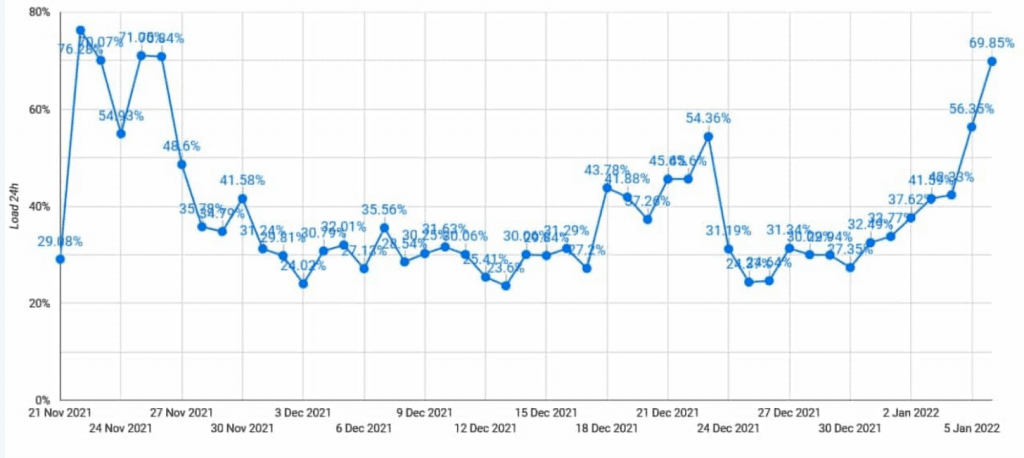The Cardano blockchain has evolved significantly over the years. It is one of the most popular green cryptocurrencies on the market. (It uses the proof of stake blockchain verification system, which reduces processing power requirement and thus energy use. Therefore, instead of requiring heavy mining, the system chooses users with larger stakes to verify transactions and add blocks to the chain.)
That said, Cardano did however suffer a significant amount of backlashes despite the developments. One of the most common censures has to be its comparison to a “ghost chain“. Now, given the near year, is that still the case?
Well, after some 67 active repositories, with 106 releases, over 38,000 GitHub commitments, let’s see what Cardano’s executives are focusing on at the moment. For one, it is expanding its DeFi ecosystem.
Expanding the family
Input Output Global (IOG) released a list with the projects already building use cases on Cardano. It included decentralized exchanges (DEX), identity, blockchain gaming, an oracle service, and others. The company claimed that developers “have been working restlessly” on these implementations. Here’s 2 out of a total of 17 developments:
🌟 @ContactDrip launched on the 1st of January!
#Cardano 4/n
https://t.co/MThD8wezYg— Input Output (@InputOutputHK) January 7, 2022
Even the community shared some humor after posting the remaining 15 updates.
“We could go on and this would be a lengthy thread indeed. Hopefully this gives you a flavor of all the work going on with projects busy Building On Cardano. Massive thanks to all projects for sharing their news (…).”
The growing ecosystem build around this network seems poised to contribute to ADA’s long-term appreciation.
More traffic
Needless to say, the on-rise of aforementioned projects will influx a large amount of transaction traffic. The team acknowledged the same.
“We can expect significant network traffic around the launch of new DApps, especially in the early days. And especially around the most hotly anticipated new DeFi launches, with many coming soon,” IOG added.
Well, Cardano prepared for this as well. The platform upgraded the core node of Cardano that seeks to enhance performance. This (v 1.33.0) would maintains its resilience & robustness. IOG’s chief tweeted:
Huge upgrade for the Core Node of Cardano. 1.3.3 is released. SPOs start benchmarking https://t.co/gz4aCEMRlp
— Charles Hoskinson (@IOHK_Charles) January 7, 2022
The network is designed to run at peak capacity and extensive benchmarking suggests significant performance improvements. This will help smooth out network peaks, giving Cardano and its executives further scope for parameter changes. But there’s more to come.
We have some exciting months ahead. Expect FUD too. yet, from our eUTXO approach to our Ouroboros protocol, #Cardano has been architected to offer a secure, highly decentralized, highly scalable platform (and highly updateable) for a future of finance measured in many decades 5/7
— Input Output (@InputOutputHK) January 7, 2022
Not just this, this exciting protocol even increased the block size by 12.5% to make room for the surging traffic expected on the network. Cardano blockchain average load as of January 7 2021, hit 69.85%, the highest figure since November 2021, when the metric peaked at 76.28%. The graph below shows average blockchain load as follows:
Source: Cardano Feed
(For context: The blockchain load refers to the utilization of the Cardano blocks. Currently, a full Cardano block is set at 73kb, where a score of 100% indicates that the blocks are full while 0% shows the blocks are empty.)
Overall, the Cardano blockchain has evolved significantly, with a recent study showing the platform was the most developed cryptocurrency network on GitHub. The proof lies above.
But there are some concerns as well. In the short term, the flagship cryptocurrency could see further downside if Bitcoin is unable to find support and bounce from its current levels. At press time, it was trading at the $1.24 level.


